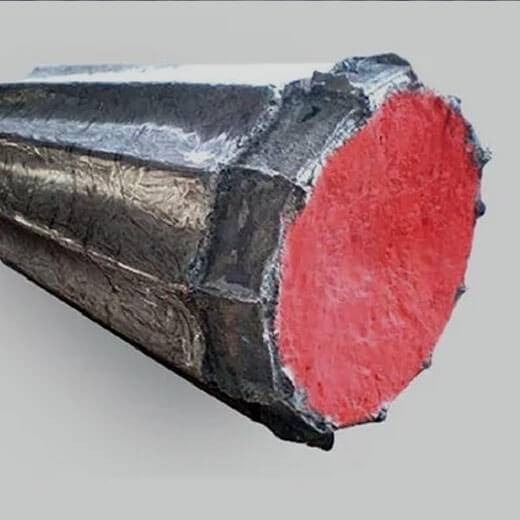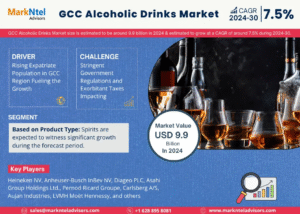
In the realm of metallurgy and manufacturing, forging quality ingots is a critical process that significantly influences the strength, durability, and performance of industrial components. Whether you are a seasoned professional or new to the field, understanding the nuances behind producing high-quality ingots can elevate the efficiency of your operations and product reliability.
This comprehensive guide dives into the essentials of forging quality ingots, the materials involved, manufacturing processes, quality checks, and the role of a reputable Forging Quality Ingots Manufacturer. By the end of this article, you will have a clearer understanding of how to source and evaluate quality ingots for industrial applications.
What Are Ingots and Why Are They Important?
Ingots are large blocks of metal, cast into convenient shapes for storage, transportation, and further processing. They are the foundational raw material for many industries including automotive, aerospace, construction, and machinery manufacturing.
The significance of forging quality ingots lies in their purity and structural integrity. Inferior ingots with impurities or uneven composition can lead to defects during forging, resulting in weakened parts and potential industrial failures.
Understanding Forging Quality Ingots
What Does “Forging Quality” Mean?
The term forging quality refers to ingots that meet stringent standards regarding chemical composition, internal structure, and mechanical properties. These ingots are specifically manufactured to withstand the stresses involved in forging, which is a mechanical process involving high pressure to shape the metal.
Key Characteristics of Forging Quality Ingots:
-
Uniform Composition: Even distribution of alloying elements to avoid weak spots.
-
Minimal Impurities: Reduced presence of non-metallic inclusions or gases.
-
Refined Grain Structure: Enhances mechanical properties such as toughness and ductility.
-
Optimal Size and Shape: Suited for the specific forging process to minimize waste.
Materials Used for Forging Quality Ingots
The choice of metal or alloy significantly impacts the characteristics of the forged product. Some commonly used materials include:
-
Steel Ingots: Carbon steel, alloy steel, stainless steel – widely used in heavy industries.
-
Aluminum Ingots: Lightweight and corrosion-resistant, essential for aerospace and automotive sectors.
-
Copper and Copper Alloys: Excellent conductivity, used in electrical components.
-
Titanium Ingots: High strength-to-weight ratio for critical aerospace parts.
Each material has specific requirements for ingot forging to maintain its properties during the subsequent manufacturing stages.
The Process of Forging Quality Ingots
Producing quality ingots involves several steps, each critical to ensuring the final product’s performance.
1. Melting and Casting
The raw metal is melted in a furnace, often under controlled atmospheres to reduce contamination. The molten metal is then cast into molds to form the ingots. Techniques vary, including:
-
Sand Casting: Traditional method but prone to surface defects.
-
Continuous Casting: Produces uniform, defect-free ingots.
-
Directional Solidification: Controls grain structure for enhanced mechanical properties.
2. Cooling and Solidification
The cooling rate influences the grain size and homogeneity. Controlled cooling prevents cracks, segregation, and internal stresses.
3. Heat Treatment
Post-casting heat treatment processes like homogenization annealing improve the internal structure by reducing chemical segregation and relieving stresses.
4. Inspection and Testing
Every batch undergoes rigorous quality checks including:
-
Chemical Analysis: Verifying composition accuracy.
-
Ultrasonic Testing: Detecting internal flaws.
-
Mechanical Testing: Assessing hardness, tensile strength, and ductility.
Choosing a Reliable Forging Quality Ingots Manufacturer
Partnering with a trustworthy forging quality ingots manufacturer is vital for securing consistent, high-performance raw materials. Here’s what to consider:
Quality Certifications
Look for manufacturers certified by recognized standards such as ISO 9001, ASTM, or equivalent to ensure their processes meet industry benchmarks.
Manufacturing Capabilities
Evaluate their production technologies — advanced casting and heat treatment capabilities reflect their ability to deliver quality ingots consistently.
Material Expertise
A manufacturer knowledgeable about your required alloys and forging requirements can provide technical support and customize ingot specifications.
Traceability and Documentation
Reliable suppliers provide detailed traceability of each ingot, including chemical composition reports and test certificates.
Benefits of Using Forging Quality Ingots in Industry
High-quality ingots translate to superior forged components, providing tangible advantages:
-
Improved Mechanical Strength: Ensures components withstand operational stresses.
-
Enhanced Durability: Resists wear, corrosion, and fatigue.
-
Better Precision: Minimizes defects, allowing tight tolerances.
-
Cost Efficiency: Reduces material wastage and rework.
Industries such as aerospace and automotive particularly benefit from these qualities, where safety and performance are paramount.
Common Challenges in Forging Quality Ingots and How to Overcome Them
1. Inclusions and Impurities
Non-metallic inclusions like slag can compromise metal integrity. Solutions include refining melting processes and using fluxes.
2. Segregation
Uneven distribution of alloying elements can weaken parts. Controlled cooling and heat treatments help mitigate this issue.
3. Cracking and Porosity
Rapid cooling or internal stresses may cause defects. Manufacturers use precise casting techniques and pre-forging heat treatment to reduce risks.
4. Supply Chain Issues
Delays or inconsistent quality affect production schedules. Building strong relationships with certified forging quality ingots manufacturers helps ensure reliability.
Advances in Forging Quality Ingots Technology
Modern techniques continue to improve ingot quality, including:
-
Vacuum Degassing: Removes dissolved gases for cleaner ingots.
-
Electroslag Remelting (ESR): Produces ultra-pure ingots with refined microstructures.
-
Additive Manufacturing Integration: Some industries now combine forged ingots with 3D-printed parts for bespoke solutions.
How to Evaluate Forging Quality Ingots for Your Industrial Needs
When sourcing ingots, keep these evaluation tips in mind:
-
Request detailed chemical and mechanical test reports.
-
Confirm ingot dimensions and weight match your forging press requirements.
-
Inspect physical appearance for cracks, surface defects, and consistency.
-
Discuss with your forging quality ingots manufacturer about any custom requirements.
Conclusion
Forging quality ingots are the cornerstone of reliable industrial manufacturing. Understanding the materials, processes, and choosing a trusted forging quality ingots manufacturer can drastically improve the quality of your forged components.
Investing time and resources in sourcing and inspecting high-quality ingots leads to better product performance, cost savings, and customer satisfaction. Whether you are dealing with steel, aluminum, or specialty alloys, prioritizing forging quality is essential for industrial success.



